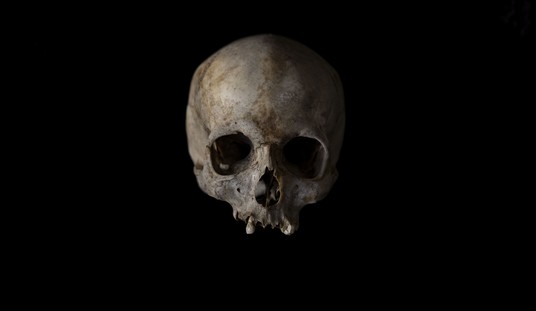This morning’s Gospel reading is 10:35–45:
James and John, the sons of Zebedee, came to Jesus and said to him, “Teacher, we want you to do for us whatever we ask of you.” He replied, “What do you wish me to do for you?” They answered him, “Grant that in your glory we may sit one at your right and the other at your left.” Jesus said to them, “You do not know what you are asking. Can you drink the cup that I drink or be baptized with the baptism with which I am baptized?” They said to him, “We can.” Jesus said to them, “The cup that I drink, you will drink, and with the baptism with which I am baptized, you will be baptized; but to sit at my right or at my left is not mine to give but is for those for whom it has been prepared.”
When the ten heard this, they became indignant at James and John. Jesus summoned them and said to them, “You know that those who are recognized as rulers over the Gentiles lord it over them, and their great ones make their authority over them felt. But it shall not be so among you. Rather, whoever wishes to be great among you will be your servant; whoever wishes to be first among you will be the slave of all. For the Son of Man did not come to be served but to serve and to give his life as a ransom for many.”
Have you ever noticed that wishes in popular mythology and art rarely work out well? Aside from Pinocchio and maybe Aladdin in some tellings, in fact, it’s tough to recall any memorable tale where the granting of wishes works out well for those who receive them. Many tales make the wishes boomerang back against the wisher in comic fashion, such as the more recent Bruce Almighty. Others demonstrate the truth behind grass-is-always-greener thinking to teach us that we’re better off without the wish; the films The Family Man and even It’s a Wonderful Life fall into this category. In some cases, such as the classic book and play The Monkey’s Paw, the consequences of their wishes become horrific.
The moral of these stories come down to one simple lesson: humans are not qualified to commandeer the reins of fate. We lack the wisdom and comprehension to know how all ends work out, and in many cases we wish for things that will bring us destruction in an almost direct and predictable manner. Our ambitions and hubris drive us, however, to arrogate those powers to ourselves whenever we have the opportunity, an impulse so recognizable that a substantial portion of our art and mythology touches directly on it.
We see this in today’s Gospel in the more common, non-magical form of temptation that we see all too often in the real world. The conversation starts off with an almost rude approach by James and John, making demands of Jesus as though He was under their authority rather than the other way around. “Teacher, we want you to do for us whatever we ask of you,” they say, in what sounds like an opening to dictate terms of their service to Him.
Rather than grow angry, however, Jesus takes the role of patient parent dealing with good-natured if momentarily willful children — which is, of course, just what these disciples are. When they deliver their demand, which is arrogant in one way but also a measure of their desire in another, Jesus patiently tells them that they don’t know what in Creation they’re talking about. When they insist that they do (“We can”), Jesus tells them that one part of their wish will be fulfilled, but it’s not the one they desire; they will drink the cup of martyrdom in service to salvation. To the rest, whom have grown angry over the jockeying for favor and position, Jesus makes clear that authority in the new kingdom is that of service, not position or favor, with His service and destruction an example for all.
It is this service, Paul writes to the Hebrews, which gives us a new High Priest who has a real and living connection to His congregation. “For we do not have a high priest who is unable to sympathize with our weaknesses,” he explains, “but one who has similarly been tested in every way, yet without sin.” With this in mind, we can “confidently approach the throne of grace” for mercy and assistance along the path of salvation.
How do we approach the throne of grace, though? We do so through prayer, of course, as well as through the liturgy of the Mass, which is itself a combination of worship, prayer, and formation. We offer praise in prayer, sorrow for our sins, and our petitions to the Lord.
And this is where we have to decide how we approach that throne. Do we approach Christ with prayer as James and John did — as demands for His service to our own priorities? Do we make our service to the Lord dependent on the answers to the prayers we offer up? How often do we at least think to ourselves, “If the Lord doesn’t give me this specific request, then I will grow angry and shrink away from him?”
Those, however, aren’t prayers. They’re demands, or perhaps put another way, wishes. The intentions themselves may be noble or petty, but if we’re making our love and worship conditional on what it gets me, then it’s not a prayer at all. In doing that, we sin in the same way as Adam and Eve in the Garden of Eden, who thought they could run things better than God by eating from the tree of knowledge. We’re not praying to be closer to God, but to be gods ourselves. That’s not faith in the Lord; in fact, it’s precisely the opposite of faith.
So how should we pray? Jesus tells us to bring our troubles to him, so we certainly can bring our intentions to the throne of grace through prayer. However, we should take a page from our cultural mythology to recognize our own limitations when it comes to getting wishes granted. God’s plan lies beyond our comprehension in this fallen world, and so we are in no position to dictate terms, especially as a condition for loving Him and each other. All we can do is bring our cares and our needs to Him and trust that the Lord has a loving plan for us all if we form our own wills to His, rather than futilely attempt to force His will to conform to ours.
If we do that, Jesus promises, we can spend eternal life in His presence, an end beyond all wishes. And we don’t even need a lantern or paw to get there.
The front-page image is a detail from “Transfiguration of Christ” by Giovanni Bellini, c. 1487, currently located at the Museo Nazionale di Capodimonte. Via Wikimedia Commons.
“Sunday Reflection” is a regular feature, looking at the specific readings used in today’s Mass in Catholic parishes around the world. The reflection represents only my own point of view, intended to help prepare myself for the Lord’s day and perhaps spark a meaningful discussion. Previous Sunday Reflections from the main page can be found here. For previous Green Room entries, click here.







Join the conversation as a VIP Member